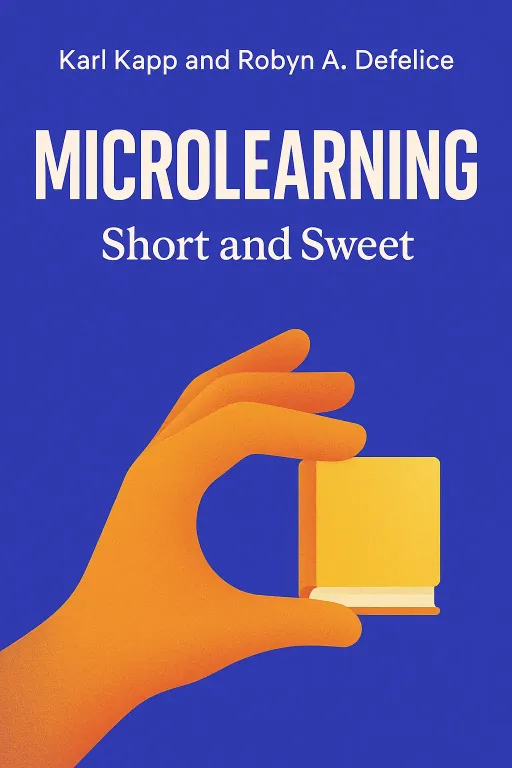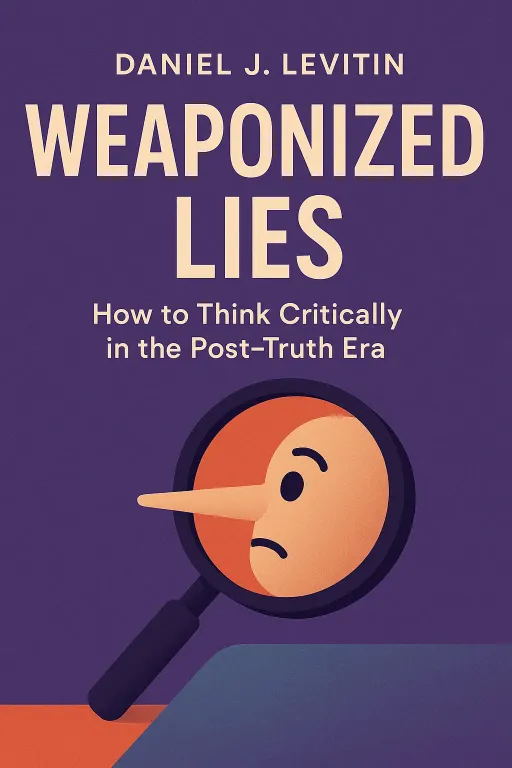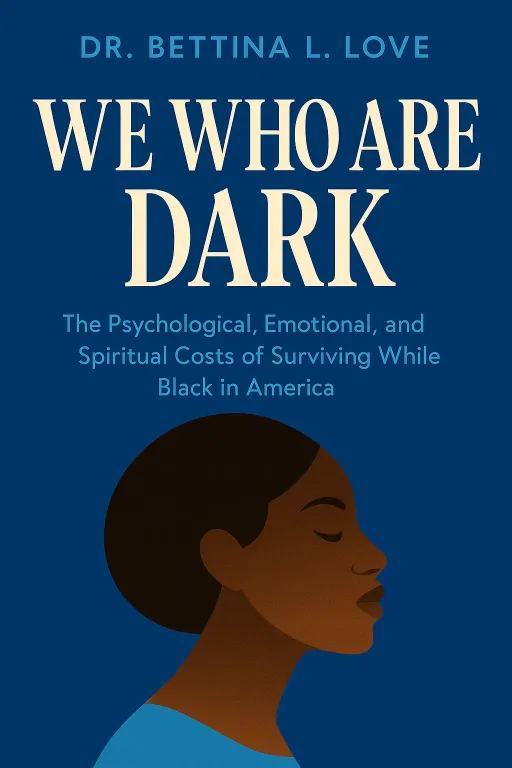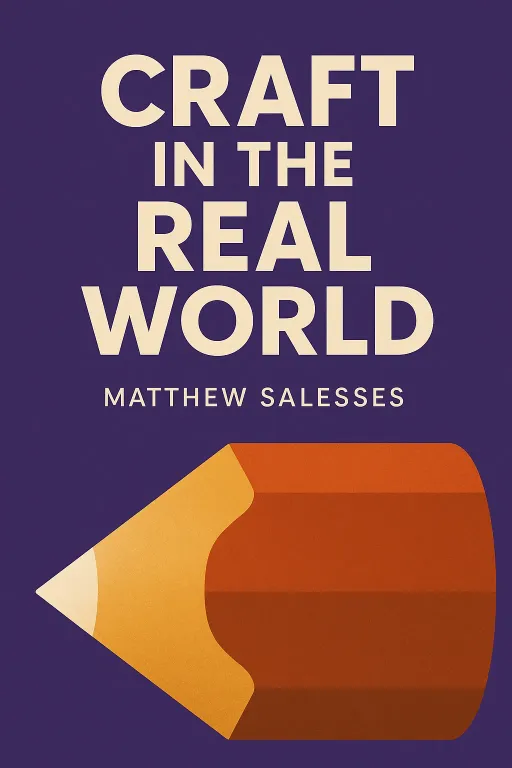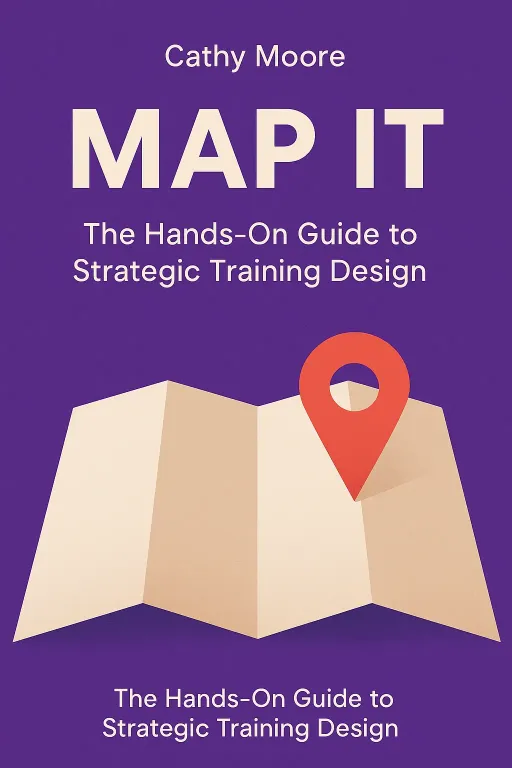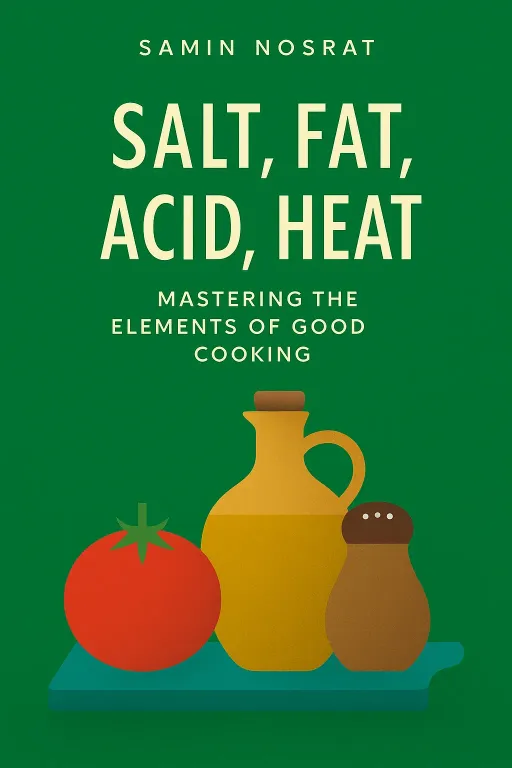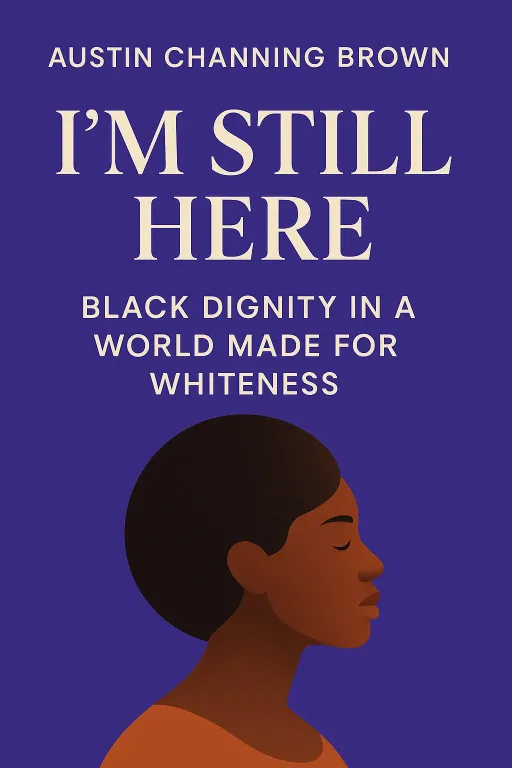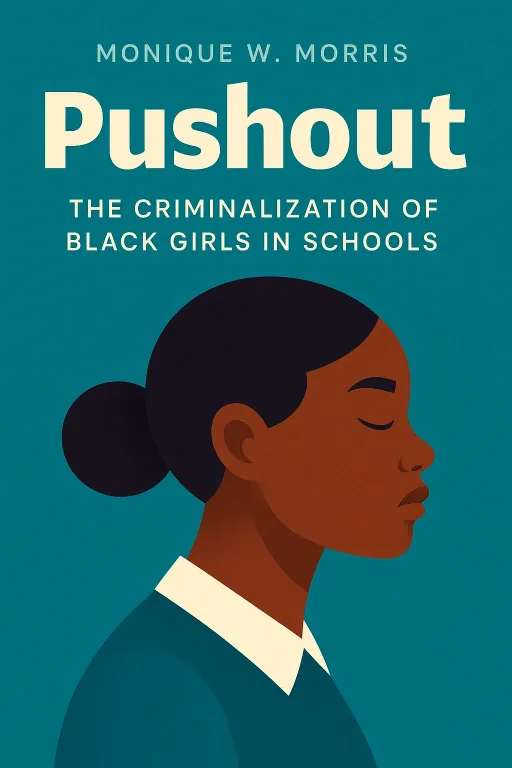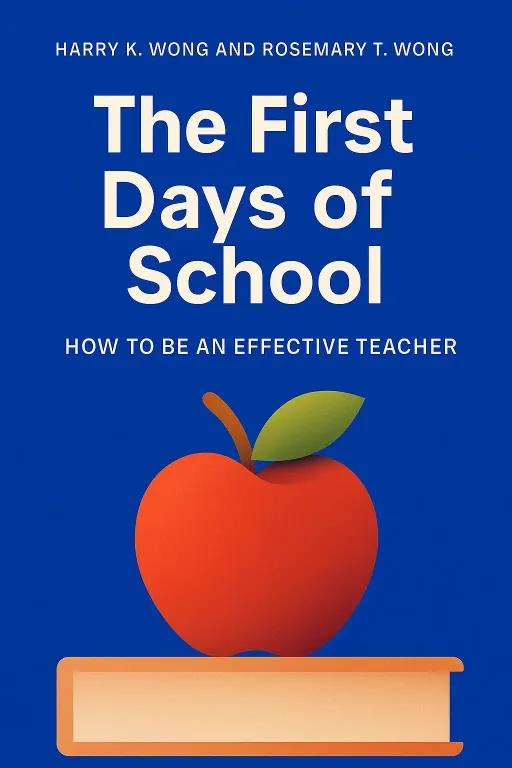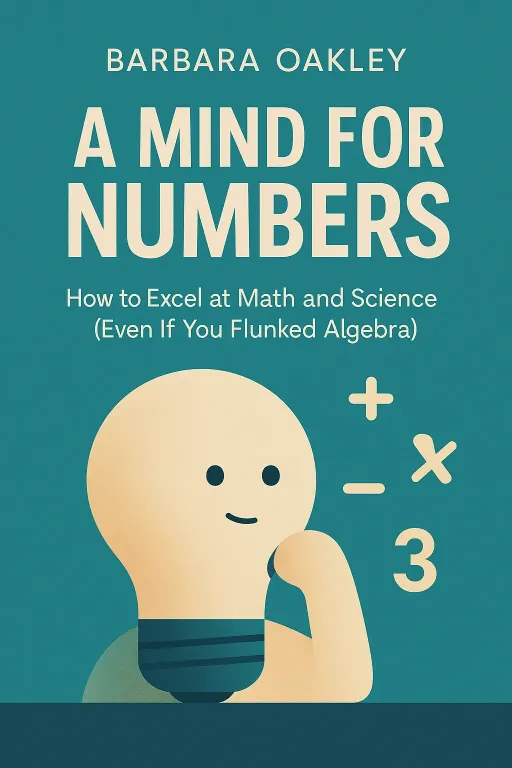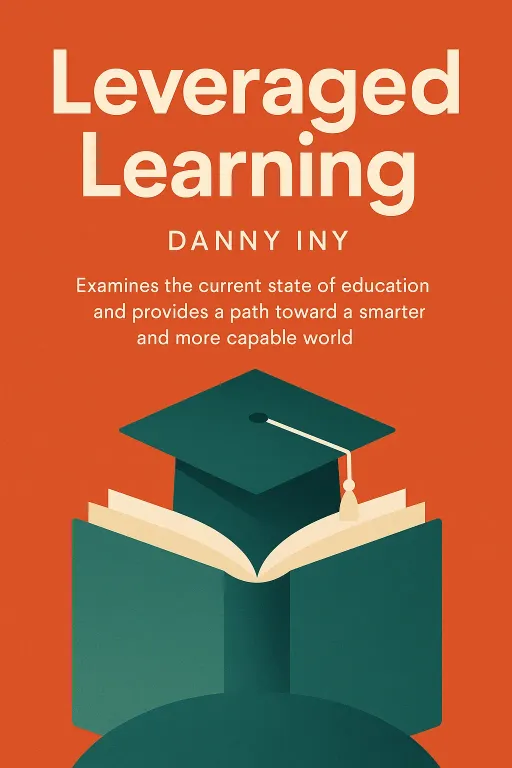
Is Your Degree Worthless?
13 minGolden Hook & Introduction
SECTION
Laura: A recent study found that 45% of college students show virtually zero improvement in critical thinking after two years. Even worse, after four years, over a third still show no improvement at all. It raises a terrifying question: what are people actually paying for? Sophia: That can't be right. Four years and all that debt for… what, exactly? A piece of paper and a fancy hat? That’s a horrifying statistic. Laura: It’s a horrifying reality, and it’s the explosive question at the heart of Leveraged Learning by Danny Iny. Sophia: Leveraged Learning. Okay, I’m intrigued. Laura: And what’s fascinating is that Iny isn't some tenured professor in an ivory tower. He's an entrepreneur who actually dropped out of high school, built businesses, and then went back to get an MBA. He said he was so shocked by the scale of the problem he uncovered during his research—the trillions in debt, the poor outcomes—that he wrote this book as a practical guide for both learners and teachers to navigate this broken system. Sophia: Wow, so he’s seen both sides. The scrappy self-starter and the institution. That gives him a unique perspective. Laura: Exactly. He argues the whole system is built on a flawed premise, starting with the degree itself. We think of it as proof of knowledge, but he says it's become a weak and incredibly expensive 'signal'.
The Great Devaluation: Why Your Degree is an Expiring Signal
SECTION
Sophia: A 'signal'? What does that even mean in this context? Is it like a status symbol? Laura: Precisely. A signal is a shortcut. A uniform signals a police officer. A fancy car signals wealth. A college degree is supposed to signal competence to employers. The problem is, the signal is getting weaker and weaker. Sophia: How so? It feels like it’s more important than ever. Laura: That’s the paradox. It’s become ubiquitous—everyone is told they need one. But the substance behind the signal is eroding. Iny points to a stunning survey where Express Employment Professionals asked employers to rank twenty factors they consider when hiring. Sophia: Okay, I’m guessing experience, attitude, skills… Laura: All at the top. And where do you think education, the college degree, ranked on that list of twenty? Sophia: I don't know, maybe middle of the pack? Number ten? Laura: Dead last. Sophia: You’re kidding. Last? After… what, a firm handshake? Laura: After everything else. And this is the core of the crisis. We're investing hundreds of thousands of dollars and years of our lives into obtaining a signal that employers themselves say they value the least. It’s created what Iny calls the 'education bubble'—stagnant value, skyrocketing costs. We’re talking a collective $1.4 trillion in student debt in the U.S. alone. Sophia: Okay, but hold on. I have to push back on this. You still need a degree to get past the HR software, right? The automated systems that filter resumes. Isn't it still 'table stakes' just to get in the door? Laura: That's the most common defense, and Iny tackles it head-on. He says signals, like a degree, only matter in the absence of better information. If you can provide a stronger signal—proof of your actual skills and substance—the degree becomes irrelevant. Sophia: And how do you do that? Laura: He tells this great story about a high school senior named Dillon Hill. Dillon wanted to start a charity called Gamers Gift, bringing virtual reality to kids in hospitals. But he needed to set up a 501(c) non-profit, a process so complicated it used to be the exclusive domain of lawyers. Sophia: Right, you’d assume you need to hire someone for that. Laura: But Dillon didn't. He just said, "But I mean, we have the Internet, you know? We can figure out anything." And he did. He navigated the entire complex legal process himself. He provided substance, not a signal. His ability to solve a complex problem was the proof, not a credential. That’s what employers are desperate for. Sophia: That’s a powerful point. The ability to do the thing is a much stronger signal than a piece of paper that says you studied the thing. It feels like the world is splitting into people who can show their work and people who can only show their diploma. Laura: And that split is accelerating. Which brings us to the next critical idea in the book: what skills actually matter in a world where information is free and robots are getting smarter every day?
The Future-Proof Skillset: Thriving in the Age of Acceleration
SECTION
Sophia: Okay, so if the degree is a failing signal and automation is coming for all the routine jobs, what are we supposed to be learning instead? What’s left for us humans to do? Laura: Iny argues that the future belongs to those who can cultivate two things computers can't replicate: Insight and Fortitude. Sophia: Insight and Fortitude. They sound like virtues from an ancient scroll, not job skills for the 21st century. Laura: (Laughs) They do, but they’re intensely practical. There’s a wonderful XKCD comic that explains this perfectly. It shows that tasks we think are hard, like advanced physics, are actually easy for computers. But tasks we find incredibly easy, like recognizing a photo of a bird, are monumentally difficult for a computer. Our brains are wired for pattern recognition and intuitive leaps. That’s where our advantage lies. Sophia: So, Insight is about that uniquely human ability to connect the dots in a creative way? Laura: Exactly. It’s the combination of critical thinking and creativity. Iny tells this fantastic story about the rapper Pitbull. In the early 2010s, he kept getting stopped in airports by women in Zumba T-shirts, telling him how much they loved dancing to his music in their classes. Sophia: Okay, so his first thought must have been about copyright. "They’re using my music, where’s my check?" Laura: That would be the simple, routine, automatable response. But Pitbull had an insight. He realized Zumba was acting as a massive, global radio station for his music, reaching an audience he couldn't. So instead of sending a lawyer, he called the owners of Zumba and proposed a partnership. He gave them his new music first, for free, to break his songs to millions of people. His next album had his first number-one single. Sophia: Whoa. That’s brilliant. He saw a distribution channel where everyone else would have seen a legal problem. That’s a perfect example of insight. But what about the other one, fortitude? That sounds so vague. How do you actually teach that? Is it just telling people "don't quit"? Laura: Not at all. Fortitude is about resilience, grit, and the non-cognitive skills that determine success far more than IQ. And the book gives a powerful model for how to build it. It comes from a story about a man named Jerry Sternin, who was sent to Vietnam in the 90s to fight malnutrition. The problem was overwhelming—poverty, poor sanitation, no resources. Sophia: An impossible situation. Laura: It seemed that way. But instead of focusing on the problem, Sternin went looking for "bright spots." He found a few families who were just as poor as everyone else, but whose children were perfectly healthy. He just watched them. He saw they were feeding their kids smaller, more frequent meals. They were adding tiny shrimp and sweet potato greens from the rice paddies to the food. They were actively feeding their kids, encouraging them, instead of just putting a bowl down. Sophia: They had figured out a solution that all the outside experts had missed. Laura: Exactly. Sternin didn't bring in a new, complicated system. He just took those simple, existing behaviors and created a program where those mothers taught the other mothers. Within six months, malnutrition was down by 65%. That’s fortitude in action: finding what works, even on a small scale, and building on it. It’s a skill, not a personality trait. Sophia: I love that. It’s not about having superhuman willpower. It’s about having a strategy. It’s about finding the bright spots in your own life, the small wins, and replicating them. Laura: And that idea of finding what works and building on it is exactly how Iny says we should design education itself. He breaks it down into a clear, practical framework.
The Six-Layer Cake of Learning
SECTION
Sophia: Okay, so if the old model of lectures and exams is broken, what does a good learning experience actually look like? Laura: Iny presents it as a structure with six distinct layers. You have to get each one right for the whole thing to work. Sophia: It sounds like baking a cake. The content is the ingredients, but you also need the right recipe, the right oven temperature, and even a beautiful presentation for it to be a success. Laura: That’s a perfect analogy! The first layer is Content, the what. But Iny says most educators get this wrong. They start with "what do I want to teach?" He advocates for a 'backward-integrated design'. He tells the story of the University of Virginia's Course Design Institute, where they start with a "Dream Exercise." Sophia: A Dream Exercise? What’s that? Laura: The facilitator asks the professors to imagine their ideal student, years after the course is over. Then he says, "Complete this sentence: '3-5 years from now, my students still know... or are still able to do... or still find value in...'" Sophia: Oh, that’s good. It forces you to think about transformation, not just information. The goal isn't to have them remember a fact, but to have changed them in some way. Laura: Exactly. That defines your content. The next layers are Success Behaviors and Delivery—how you teach students how to learn and how you present the material. But the layers that really resonated with me were the last three: User Experience, Accountability, and Support. Sophia: User Experience in a course? You mean like, is the website easy to use? Laura: Yes, but it’s deeper than that. It’s about removing friction. Amazon found that a one-second page-load delay could cost them $1.6 billion a year. In learning, the friction is even more costly. If a video buffers, or a link is broken, or an instruction is confusing, a student might just give up entirely. Sophia: I’ve definitely abandoned an online course for less. Which brings us to accountability. That feels like the biggest challenge in self-directed learning. Laura: It is. And Iny has a very personal story about this. He talks about running the Montreal Marathon. He trained for months, but around mile 20, he hit the wall. Every part of his body was screaming at him to stop. Sophia: The classic marathon moment of despair. Laura: Totally. He said he was shuffling, walking, barely moving. But he finished. And when he reflected on why he didn't quit, he said it wasn't his training or his willpower. It was one thing: his then-girlfriend, now wife, was running right beside him. He couldn't quit on her. That’s accountability. It’s about creating social structures that make it harder to quit than to keep going. Sophia: Wow. So a great course needs to build in that marathon buddy, digitally or otherwise. And the final layer is Support? Laura: Yes, which is about solving what’s called Bloom's 2 Sigma Problem. Research found that students with one-on-one tutoring performed two standard deviations better than their peers in a traditional classroom. That’s the difference between being an average student and being in the 98th percentile. Sophia: That’s an incredible difference. But it’s not scalable. You can’t give every student a private tutor. Laura: You couldn't, historically. But Iny argues that with technology, peer-to-peer feedback systems, and smart course design, we can get closer than ever to providing that level of targeted support for everyone. It’s about applying human help where it has the most leverage.
Synthesis & Takeaways
SECTION
Sophia: It’s really a fundamental shift in thinking. It's not just about what you learn, but how you learn and why. The old model was about getting a stamp of approval—the degree. This new model is about continuous transformation. Laura: Exactly. And Iny's message is for everyone. For learners, it's a call to be critical consumers of education. For experts with something to teach, it's a roadmap to becoming the educators we so desperately need in this new world. Sophia: So what’s the one thing someone listening right now should do differently? Laura: I think it’s this: the next time you consider a course, a degree, or any learning experience, don't just ask what you'll learn. Ask two more questions. First: "How will this transform what I can actually do?" And second: "What support systems and accountability structures are in place to make sure I don't quit when it gets hard?" Sophia: Those are powerful questions. They change your whole framework for evaluation. We'd love to hear your own experiences with this. Have you found an educational experience that truly transformed you, or one that fell flat? Find us on our socials and share your story. Laura: This is Aibrary, signing off.
